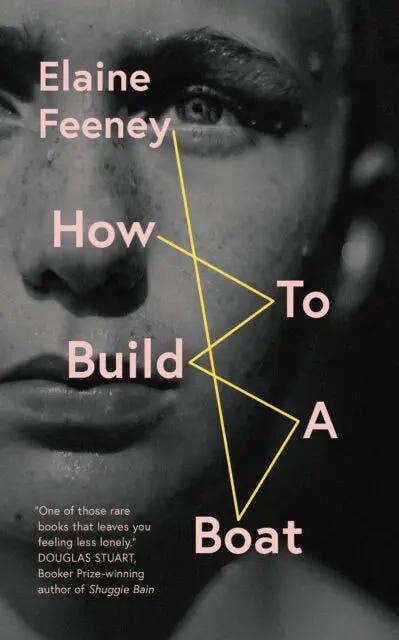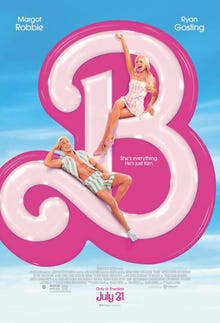First, three new book reviews published on the Miramichi Reader:
Not That Kind of Place by Michael Melgaard (2023)
Lump by Nathan Whitlock (2023)
How to Build a Boat by Elaine Feeney (2023)
Comments on the following below:
Narrative of the Life of Frederick Douglass (1845)
Adam Bede by George Eliot (1859)
Orlando: A Biography by Virginia Woolf (1927)
The Odyssey by Homer (8th c. BCE)
The Autobiography of Benjamin Franklin (1791)
The Secret History by Donna Tartt (1992)
Recollections of My Nonexistence by Rebecca Solnit (2020)
The Rose Code by Kate Quinn (2021)
The wandering mind finds what it finds. I guess one could guess I'm trying to catch up where I haven't yet caught up. I used to have a t-shirt (bought by my parents): "So many books, so little time." So true.
“Frederick Douglass is an example of somebody who's done an amazing job and is being recognized more and more, I notice,” said you know who (2017). I mean, it's not wrong. Douglass was born in 1817 or 1818, enslaved, in Maryland. In 1838, he escaped to New York before settling in New Bedford, Massachusetts, where he became known for his public speaking for the abolitionist cause. I listened to Narrative of the Life as an audio book and found it powerful as the day it was written. In it, Douglass recounts his early life up to the moment he became a free man. He is one of the giants among 19th century American voices and one of the foundations of dialogues ongoing.
Listening to Benjamin Franklin's Autobiography was less harrowing but just as interesting. How modern they both sound, though one tends to think of each of them as being from distant eras. Not so. It is Franklin's voice that we hear as the "practical American," focused on "just get it done." Curious, optimistic, experimental, willing to take risk, happy to receive reward, suspicious of hard line ideologies. Okay, that last used to be more generally true — and please may it yet be true again. Franklin settles in Philadelphia as a young man, escaping his father's influence and lives a life of many adventures. Printer, postman, diplomat, scientist. A stereotype of the Enlightenment, today he would potentially be a tech bro. He would lap Elon, though. Rapidly.
I don't have much to say about Homer, except - check. Done.
Orlando. Who knew Virginia Woolf could be funny?
If you know anything about Orlando, the character, you probably know that he/she changes genders about halfway through. You may also know that he/she lives 300+ years. I knew the first part but not the second part. What I also didn't expect was all of the wry commentary on English literary history along the way, and by "wry commentary" I mean brilliant, insightful, often hilarious portrayal of Addison, Swift, Pope and the like. Characterization of standard literary personalities appear and then reappear. Have you met the pretentious poet? The overly verbose critic? The self-promoter? It's almost as if the literary set has remained constant over time. (Note: surely, it has?) The change in Orlando's gender doesn't affect the plot as much as I would have thought, though it allows Woolf to point her sharpened pen to the social and personal consequences of the change. Is Orlando still a person? A court needs to decide. (Spoiler: it decides, yes.) I knew that Woolf was a biographer, but I didn't note the subtitle of the novel until after I'd begun. The novel has a first person narrator, the biographer, and this approach allows Woolf to provide a running commentary on the art of biography even as she unfolds the life of her subject. This is a superb and deeply intelligent book, though the reader will be aware that even as Woolf breaks down certain barriers, she remains caught within others. Class and race appear to bewilder her.
Adam Bede was George Eliot's first novel. Set in 1799, it describes events that shape the destiny of its title character, though Adam does little, really, to set his ball of fortune in motion. Overall, the book struck me as a preparatory study for Eliot's masterpiece, Middlemarch (1871). Here, as in that later novel, Eliot captures the polyphonic voices of a rural English community, often the working folks, male and female, their trials, dreams, daily pressures, conflicts, and ambitions. Everyone loves Adam, except the girl he loves, who is besotted with a young man of a higher class, which the rules of the social order say ought to be leaving her alone. Except he doesn't. Complications ensue. I won't include any more of the plot, just say all's well that ends well, except where it doesn't. Yes, there is an overwhelming interest in marriage here, who ends up with whom, and how. An early version of Love Island, perhaps? Similar to Orlando, this novel has a narrator that speaks directly to the reader, commenting on the action and the improbability of it. We’d call it post-modern in approach, if post-modernism had been invented, but then it had, yeah, so it is, yeah.
I don't know how I missed The Secret History. I've only recently become aware of it. I listened to this, too, as an audiobook, and the first surprise was to discover it's dedicated to Bret Easton Ellis. Research reveals, they went to school together, both graduating from Bennington, class of 1986, along with Jonathan Lethem. Haven't read him. Did read Ellis's Less Than Zero (1985) in the late-1980s and still remember: "People are afraid to merge." Still true. (I saw Ellis read at Toronto's Harbourfront Reading Series, late-1990s maybe, on a bill with Steven Heighton. Heighton read a story that included a narwhal, Ellis read I-can't-remember-what, but the venue was marked with picketers who were protesting Ellis's appearance, because: American Psycho (1991).) In any case, The Secret History is no longer a secret in history. It's great. Recommended. Probably better the less is said about it. It benefits from slowly revealing itself.
In Recollections of My Nonexistence, Rebecca Solnit gives the long version of her heat seeking essay, Men Explain Things to Me (2008). As Vivian Fairbank, in a 2020 anti-Solnit article in The Walrus notes, Solnit's brand of feminism is optimistic. The world is getting better. Witness her life and its myriad improvements. I tried to interest my 19-year-old step-daughter in Solnit. I gave her my copy of the book version of Men Explain Things To Me (2014). Her response, "Meh," which surprised me. Reading Recollections, I resisted agreement with this conclusion, but increasingly I wanted to say, "Rebecca, young women are not going to buy this." But let's look at that word "nonexistence," and let's remember that Orlando needed a court order to be determined a person. Douglass needed to break the bonds of enslavement and risk life and limb to become free. Personally, I think Solnit's description of her move out of nonexistence is clear and persuasive. She’s a little older than me, and her description of the world is a description of the world I get. (Note to self: Ask what you aren’t asking.) Solnit’s description of “the shift” isn’t as clear as, perhaps, "Barbie" (2023), but it is still strong. I like Solnit, but I will have to take up Fairbank's suggestion of looking up Jia Tolentino now.
Finally, Kate Quinn's The Rose Code. This was a book club pick, and it's a fun female-centred romp through the U.K.'s intelligence work during World War II and related fictional subplots. That's about all I can say about that one. Cool.
Read on, McDuffs.






